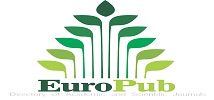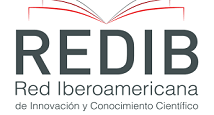Descifrando a la violencia política en Memorias de un soldado desconocido
DOI:
https://doi.org/10.51440/unsch.revistaeducacion.2025.25.505Palabras clave:
violencia política, memoria, nación, traumaResumen
La literatura, entre otras manifestaciones, recrea realidades diferentes. Este ensayo se centra en el análisis de la violencia política en el libro "Memorias de un soldado desaparecido". Más que una mera memoria, la obra revela similitudes entre tres contextos distintos y se ha convertido en un reflejo de la lucha del Perú por reconciliarse con su pasado violento. A través de la rememoración de momentos olvidados de miseria y desesperación, así como de actos de crueldad y humanidad, el texto captura las nociones de una nación marcada por el trauma. La narrativa recurre a la memoria, permitiendo a los lectores comprender las acciones y reacciones de su protagonista, quien intenta asimilar lo sucedido y superar el trauma de un recuerdo profundamente arraigado. Para explicar la significancia de la violencia política en esta historia, tomamos las crónicas de Gavilán que es una autobiografía fascinante de un niño guerrillero, soldado, monje franciscano y, finalmente, un estudiante de doctorado en la universidad Iberoamericana de México.
Descargas
Citas
Bradbury, M. Gen. Ed. (2001). Introduction. The Atlas of Literature. Prospero, c.
Caruth, C. (1995 a) Trauma: Explorations in Memory. John Hopkins University Press.
Caruth, C. (1995 b). Recapturing the Past: Introduction. En C. Caruth (ed.), Trauma: Explorations in Memory. John Hopkins University Press.
Cathy C. (1996). Unclaimed Experience: trauma, Narrative, and History. Te Johns Hopkins University Press.
Davies, P. R. (2008) Memories of Ancient Israel: An Introduction to Biblical History-Ancient and Modern. Westminster John Knox Press.
Eysenck, M. W. (2012). Fundamentals of cognition. Psychology Press.
Foerde, K., & Poldrack, R. A. (2009). Procedural learning in humans. In L. R. Squire (Ed.), The new encyclopedia of neuroscience, 7( ) 1083-1091. Academic Press.
Laub, D. (1995). Truth and Testimony: The Process and the Struggle. En C. Caruth (ed.), Trauma: Explorations in Memory (p. 61-75). John Hopkins University Press.
Markowitsch, H. J. (1999). Gedächtnisstörungen, Kohlhammer.
Mather, M & Nesmith, K. (2007). Arousal-enhanced location memory for pictures. Journal of Memory and Language, 58(2), 449-464.
Moreno-Nuño, C. (2006). Las huellas de la Guerra Civil, Mito y trauma en la narrativa de la España democrática. Ediciones Libertarias.
Ortiz Wallner, A. (2012). El arte de ficcionar: la novela contemporánea en Centroamérica. Iberoamericana-Vervuert.
Wittgenstein, L. (1974). Philosophical Grammar, R. Rhees (ed), A. Kenny (trans.). Blackwell.
Descargas
Publicado
Cómo citar
Licencia
Derechos de autor 2025 Paul Michael Silvera Curi

Esta obra está bajo una licencia internacional Creative Commons Atribución-NoComercial 4.0.





















